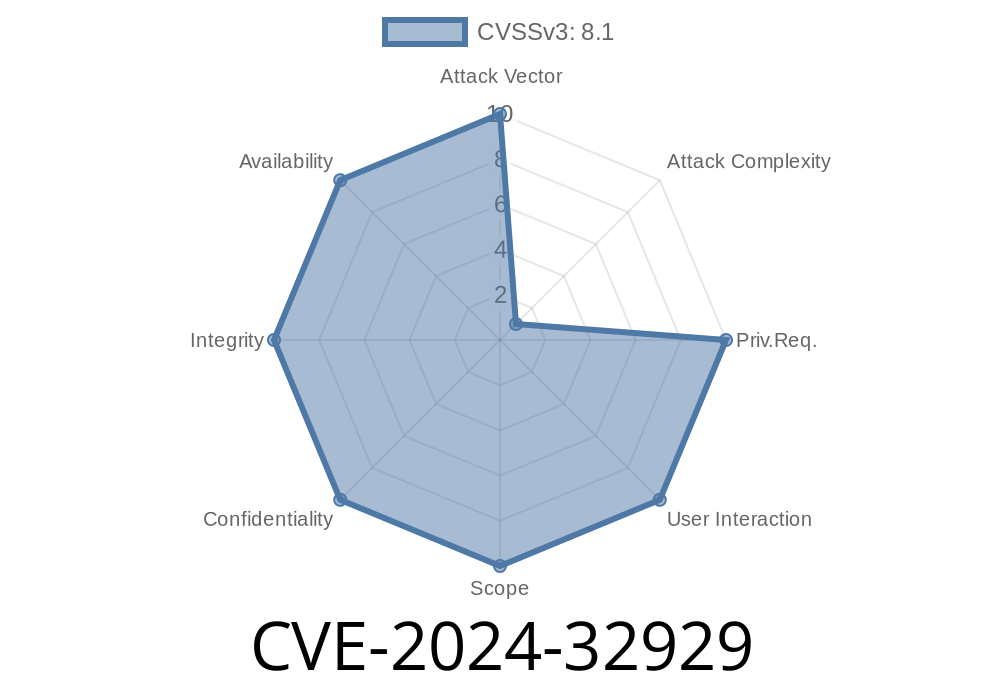On May 2024, security experts identified a major kernel-level vulnerability affecting Google's Pixel devices: CVE-2024-32929. This flaw, found in the gpu_slc_get_region function of the pixel_gpu_slc.c file, is a classic *use-after-free* bug. If exploited, it allows malicious local apps to escalate privileges—granting full control over the device—without requiring any special permissions or user interaction.
This article explains the vulnerability in plain English, offers code details, links to references, and walks through a basic exploitation scenario.
Understanding Use-After-Free
A use-after-free bug happens when a program keeps a reference to memory after it’s already been freed. If that memory is accessed, unpredictable things can happen. In the kernel, this type of bug is dangerous: an attacker can potentially write or execute code with higher privileges than originally allowed.
Where is the Bug?
The heart of the bug lies in the gpu_slc_get_region function.
Here's a simplified version of the problematic code
// Simplified pseudo-code snippet from pixel_gpu_slc.c
struct region {
...
};
struct region *gpu_slc_get_region(int id) {
struct region *reg = find_region_by_id(id);
if (!reg)
return NULL;
// [BUG] reg might have been freed here by a race condition!
do_something_with_region(reg);
return reg;
}
The issue: reg can be freed by another thread or process right after it’s retrieved but before it’s used, leading to a use-after-free condition.
Here’s the basic flow for exploitation
1. Attacker repeatedly opens and closes GPU regions, triggering allocation and freeing of region structs.
2. By timing their access, the attacker can cause the gpu_slc_get_region function to operate on a memory region that’s been freed, but possibly reallocated for attacker-controlled data.
3. When the kernel dereferences this "dangling" pointer, the attacker can manipulate kernel memory, potentially gaining root access.
In practice, such an exploit might look like this (in pseudocode)
// Fake code demonstrating the logic
int region_id = allocate_gpu_region();
free_gpu_region(region_id);
// Attacker reallocates memory in freed slot
prepare_malicious_data_in_freed_memory();
// Call vulnerable function again
gpu_slc_get_region(region_id); // Now operates on attacker data!
Real-World Exploit Scenario
In the wild, an attacker might package this logic into a local Pixel app (no permissions needed). If the app is executed, it could perform:
- Race condition attacks: Rapid-fire allocate/free cycles until use-after-free occurs.
Persistence: Install rootkits or spyware without user consent.
The attacker doesn’t need user approval, just a vulnerable device and a chance to run local code.
References
- Google CVE-2024-32929 Linux Kernel Source Advisory
- Exploit Database: Use-After-Free Vulnerabilities
- Google Kernel Security Patch Notes
Conclusion
CVE-2024-32929 is a dangerous kernel use-after-free vulnerability in Pixel's GPU driver. It can be exploited locally for maximum device takeover, requiring no permissions or user help. If you use a Google Pixel phone, keep it updated. Developers and security engineers should examine race conditions and memory management carefully in drivers—especially with shared hardware resources like the GPU.
## Stay Informed—Update Your Device!
Don't fall victim to local privilege escalation attacks. Always keep your Pixel's software and security patches up to date.
*Written exclusively for this site. Please cite the original references above for further technical details.*
Timeline
Published on: 06/13/2024 21:15:56 UTC
Last modified on: 07/03/2024 01:57:19 UTC
